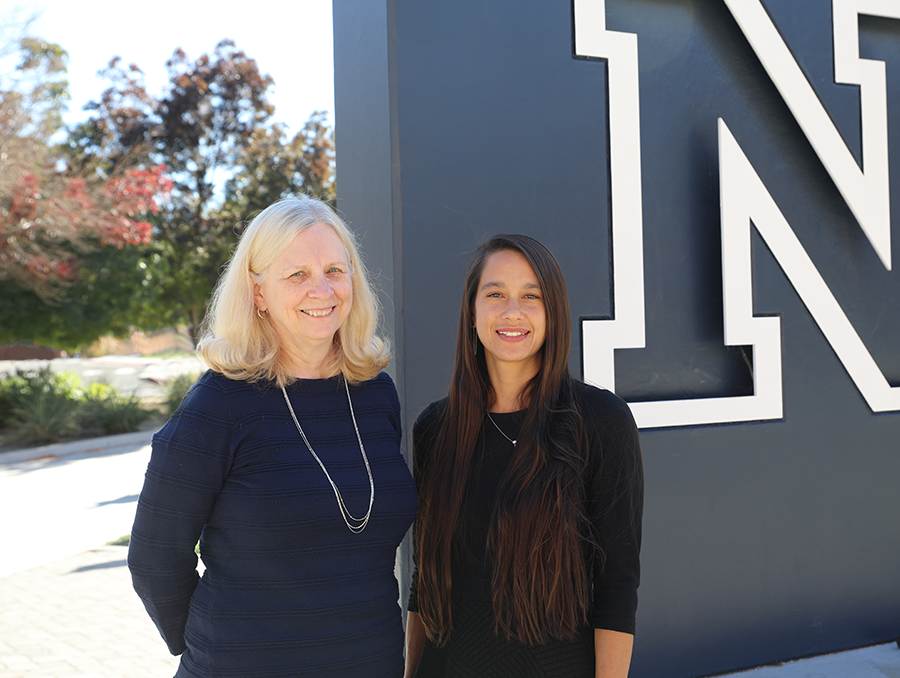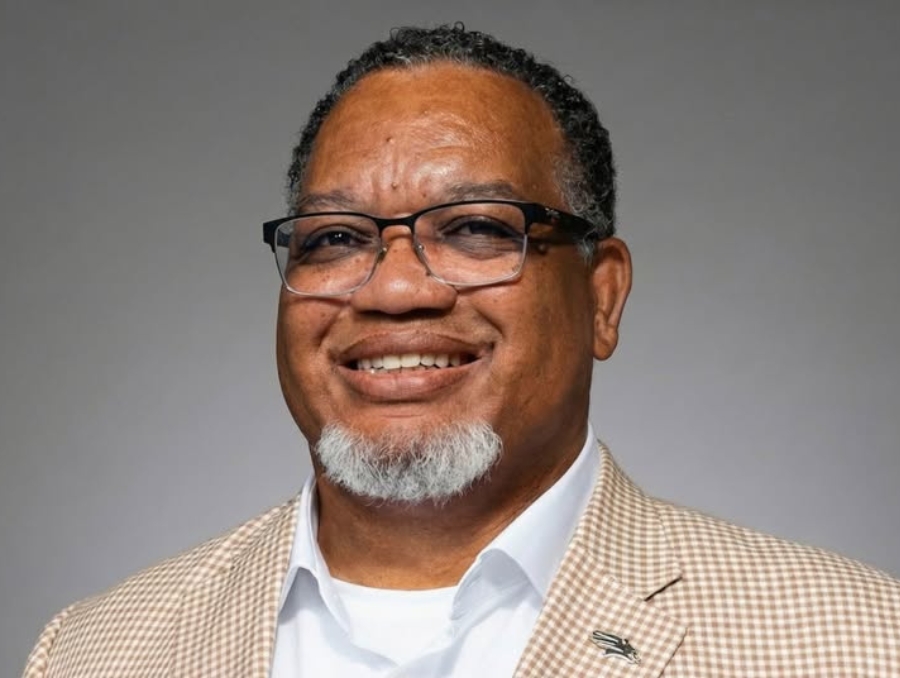The College of Education & Human Development received a nearly $1.1 million grant over five years to support the education and training of applied behavior analysts (ABAs) in special education school settings through the U.S. Department of Education, Office of Special Education Programs (OSEP). This transformative initiative, known as Project BASE: Behavior Analysts in Special Education, is being spearheaded by college faculty Project Director and Principal Investigator MaryAnn Demchak, Ph.D., BCBA-D, LBA and Co-Investigator Chevonne Sutter, Ph.D., BCBA-D, LBA.
“It is wonderful that OSEP recognized the strength of our master’s degree program and our proposal,” Demchak said. “This funding is highly competitive, and we are so pleased to be awarded funding and to have the opportunity to prepare ABAs who will be qualified to work in school-based, special education settings.”
Over the course of five years, Project BASE aims to prepare a total of 22 scholars who will contribute to the improvement of applied behavior analysis in special education in the state. The program will be divided into two cohorts, with each cohort completing their master's degree programs in 2.5 years. The first cohort comprises 10 ABA scholars, and the second cohort will have 12 ABA scholars. Scholars will earn a Master of Education in Special Education emphasizing applied behavior analysis. The students will receive funding for their entire programs and will be eligible to fulfill their required service obligations upon degree completion.
"We are excited about this opportunity to have a great impact on our communities," Donald Easton-Brooks, Ph.D., Dean of the College of Education & Human Development, said. "Providing an opportunity to enhance the knowledge of our teachers will elevate students' learning and enrich the learning environment."
The University's Master of Education in Special Education program has an emphasis area that the Association for Behavior Analysis International has verified toward the coursework requirements for eligibility to take the Board Certified Behavior Analyst® (Option 1) examination. Applicants will need to meet additional requirements before they can be deemed eligible to take the examination. These additional requirements include supervised fieldwork hours. Project BASE will provide the required supervision for the necessary fieldwork hours to ensure high-quality experiences in school-based special education settings to prepare ABA scholars for school-based work and be eligible to apply to take the national exam to be a Board Certified Behavior Analyst (BCBA).
“This funding is an incredible opportunity for master’s degree scholars to emphasize their studies without having to worry about funding tuition for their degrees,” Demchak said. “There is also an opportunity for stipends to cover other costs related to graduate studies. OSEP recognized the importance of addressing the overall well-being of scholars and allowed inclusion of funds to cover various expenses related to graduate studies.”
There is extensive evidence of the relevance of applied behavior analysis in the education of students with disabilities (Demchak et al., 2020). Unfortunately, a myth perpetuates that behavior analysis is relevant only to those identified as having autism; it may be the most common misconception that behavior analysis is only relevant for interventions targeting individuals with autism rather than being acknowledged as a science and approach that is applicable to all students who have disabilities (not just autism; Demchak et al., 2020).
Many BCBAs are prepared through programs at universities and colleges that are not part of special education, and they may not actually have experience in school settings or in consulting and collaborating with teachers and other school-based professionals (Syed, 2019). The Behavior Analyst Certification Board (BACB) ethics code states that applied behavior analysts must work within one's scope of competence (Section 1.05; BACB, 2020). When behavior analysts are prepared for clinical and private settings, there may be a mismatch in meeting the needs of students with disabilities in school settings. Syed (2019) states that it is problematic when ABAs are prepared in clinical or home-based settings and then contracted to work in schools or school districts or become employees of school districts without having any supervised experiences or specialization in schools. When this situation occurs, one might argue that at least some behavior analysts are working outside their scope of competence when they work in schools without ever having supervised experiences in these settings. Kenyon et al. (2023) recommend that graduate programs preparing ABAs to be BCBAs in school settings should require some type of public school experience/internship as part of the curriculum. Project BASE aims to address these concerns.
“The culture and expectations of school-based settings are very different from those related to home and clinic settings,” Sutter said. “It is important that ABAs are appropriately prepared for the settings in which they will work. Project BASE will prepare students to work effectively in special education settings through coursework and the required supervised fieldwork hours. These combined experiences will address the specific competencies and skills needed for school settings.”
There is a need to ensure ABAs are appropriately prepared to knowledgeably work in school settings with students with disabilities who have high-intensity needs and to work collaboratively with teachers and other school personnel. Project BASE is aimed at addressing this need and will do so by providing funding for scholars who come from two different backgrounds.
Half of each cohort will be current special education teachers already working in special education school settings. The other half will be individuals who hold a bachelor's degree who are working as Registered Behavior Technicians (RBTs), Board Certified assistant Behavior Analysts (BCaBAs), school-based educational paraprofessionals, or who graduated from programs in related areas (e.g., psychology, human growth and development). A minimum of 65% of the grant funding will go toward scholar support (e.g., tuition, fees, stipends for books, and other potential stipends). Stipends will be available for paraprofessional scholars who are not currently in school-based, special education settings; the stipends will provide support for two semesters in school settings to accrue hours toward the required supervised fieldwork.
To learn more about this program, please contact MaryAnn Demchak or Chevonne Sutter at ABASpecialEducation@unr.edu.
Note: The contents of this article were developed under a grant from the Department of Education (H325R230022). However, those contents do not necessarily represent the policy of the Department of Education, and you should not assume endorsement by the Federal Government.
















